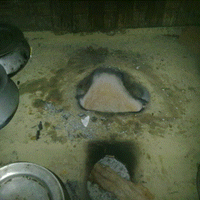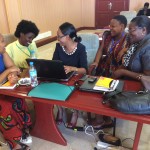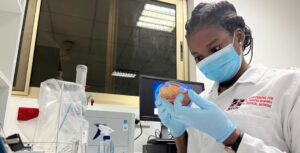
Indoor air pollution puts women of rural Bangladesh at risk of pulmonary diseases
Indoor air pollution puts women of rural Bangladesh at risk of pulmonary diseases
Chronic obstructive pulmonary disease (COPD) is one of the leading causes of death in the world. While many cases of COPD are the result of an individual’s habitual factors, many people in developing countries suffer from it due to indoor air pollution caused by poor housing and inappropriate cooking fuels.
Medical research carried out in Bangladesh has linked the high prevalence of COPD among women of rural Bangladesh to wide use of biomass for cooking in poorly ventilated kitchens.
An articled titled Indoor Biomass Fuel Smoke Exposure as a Risk Factor for Chronic Obstructive Pulmonary Disease (COPD) for Women of Rural Bangladesh, published in Chattagram Maa-O-Shishu Hospital Medical College Journal, has concluded that COPD among rural women in Bangladesh is associated with the smoke from indoor biomass fuel.
The study was carried out among 250 women over 40 years of age living in five Upazillas (sub-districts) in Chittagong, Bangladesh. One in five women (20.4%) in the study had COPD.
Most of the households in the study area used biomass, which included wood, cow dung and charcoal, for cooking while some used natural gas or LPG (liquefied petroleum gas). The prevalence of COPD among women using biomass was significantly higher (16.4%) than women using LPG (4%).
Dr. Rajat Sanker Roy Biswas, author of the article and Resident Physician in Chattagram Maa Shishu-O-General Hospital, Bangladesh, explained: “I carried out the research because I found many non-smoking women being admitted to the hospital with COPD”.
“Rural women in Bangladesh neglect their health issues, so cooking is done mainly indoors with an open-fire traditional cooking stove, in a small adobe kitchen with a roof made of wood or grass, with or without any ventilation”, Dr Biswas added.
Biomass smoke contains many pollutants and exposure to it causes several diseases including acute respiratory infections (ARI), middle ear infection, chronic obstructive pulmonary disease (COPD), lung cancer, asthma, cancer of the nasopharynx and larynx, tuberculosis, perinatal conditions and low birth weight, and eye diseases such as cataracts and blindness.
The author has recommended use of cleaner fuel, use of burners or stoves that release less smoke from the combustion and regular respiratory health check ups of rural women who use biomass for cooking.
The article “Indoor Biomass Fuel Smoke Exposure as a Risk Factor for Chronic Obstructive Pulmonary Disease (COPD) for Women of Rural Bangladesh”, appears in the latest issue (Vol. 15(1), 2016) of the Chattagram Maa-O-Shishu Hospital Medical College Journal, pages 8-11. The article is made available online via Bangladesh Journals Online (BanglaJOL) platform, which is part of the JOL Project supported by INASP.
About the Journal
The Chattagram Maa-O-Shishu Hospital Medical College Journal (CMOSHMC Journal), is a multi-disciplinary peer-reviewed journal published three times a year by Chattagram Maa-O-Shishu Hospital Medical College.
About BanglaJOL
BanglaJOL is a database of journals published in Bangladesh. It was initiated in June 2007 and officially launched in September 2007 with the support of by International Network for the Availability of Scientific Publication (INASP). The objective of BanglaJOL is to give greater visibility to the participating journals, and to the research they convey. It is managed locally by the Bangladesh Academy of Science (BAS). It provides open access to the full text of research articles published in 139different journals from a wide range of academic disciplines and genres.
About INASP
INASP is an international development charity working with a global network of partners to improve production, sharing and use of research information and knowledge, so that countries are equipped to solve their development challenges. In particular, INASP works to strengthen the availability, access and use of international research information by researchers in developing countries and the production, quality, dissemination and access of research outputs from researchers in those same countries.
Disclaimer: Research published in journals hosted on the BanglaJOL platform is selected by the journals in accordance with their own editorial processes and criteria. INASP and BanglaJOL provide hosting and guidance on good practices but are not involved in selection of research.
For Further Information
Thakur Amgai, Communications Consultant, INASP
email tamgai@inasp.info
Dr Sangita Shrestha, Communications Officer, INASP
email sshrestha@inasp.info

 Next Post
Next Post


